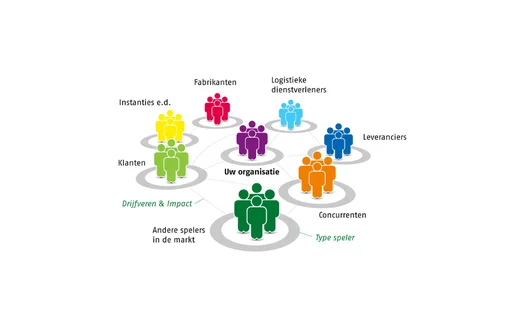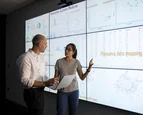Off the beaten track
Partly for this reason, Centric believes it is important to be able to access data derived from its business applications efficiently and conveniently. The digitalization mindset in business operations, and consequently the IT landscape, is broadening for the same reason. Traditionally, business applications and underlying data have their origins in process-oriented thinking. This is characterized by, among other things:
- focus on standardization and efficiency of business processes
- centrally controlled decision-making and management of the whole
- focus on best practices (because: today's success offers more certainty for tomorrow)
Applications are purchased and enhanced for each process or part of it. Linking those process parts is the obvious thing to do. The result is a huge tangle of APIs that interconnect applications, mostly transactional in nature and focused on one or more actions within a specific business process.
However, the digital perspective on the sustainability issue also requires a different mindset: the data mindset. This is now just as important as the process mindset. The data perspective emphasizes issues such as:
- focus on the intelligent acquisition and use of process and situational data
- dependence within a network of autonomously deciding and acting parties
- focus on agility (fail fast, and above all learn from it)
By setting up data only from the process perspective, choices are made that are simply not workable from the data perspective. For example, there are examples of applications that store completion forms as unstructured data, for example as an image file in PDF format, because an employee only needs to view it briefly to then approve it. The data in the form is otherwise virtually unusable for analysis unless someone again applies additional techniques to convert the image back into tabular form, for example with OCR. In short, an expensive and error-prone detour to analysis, due to a missing data mindset.
Data coming from other parties in the ecosystem, whether public or not, are also crucial for a solidly based understanding of sustainability measures. Instead of linking applications process-oriented, or transaction-based, there is an increasing need to be able to link data sources as well. With those links, data queries can be realized that are completely independent of what a business application can or wants to release in terms of data at any given time.




